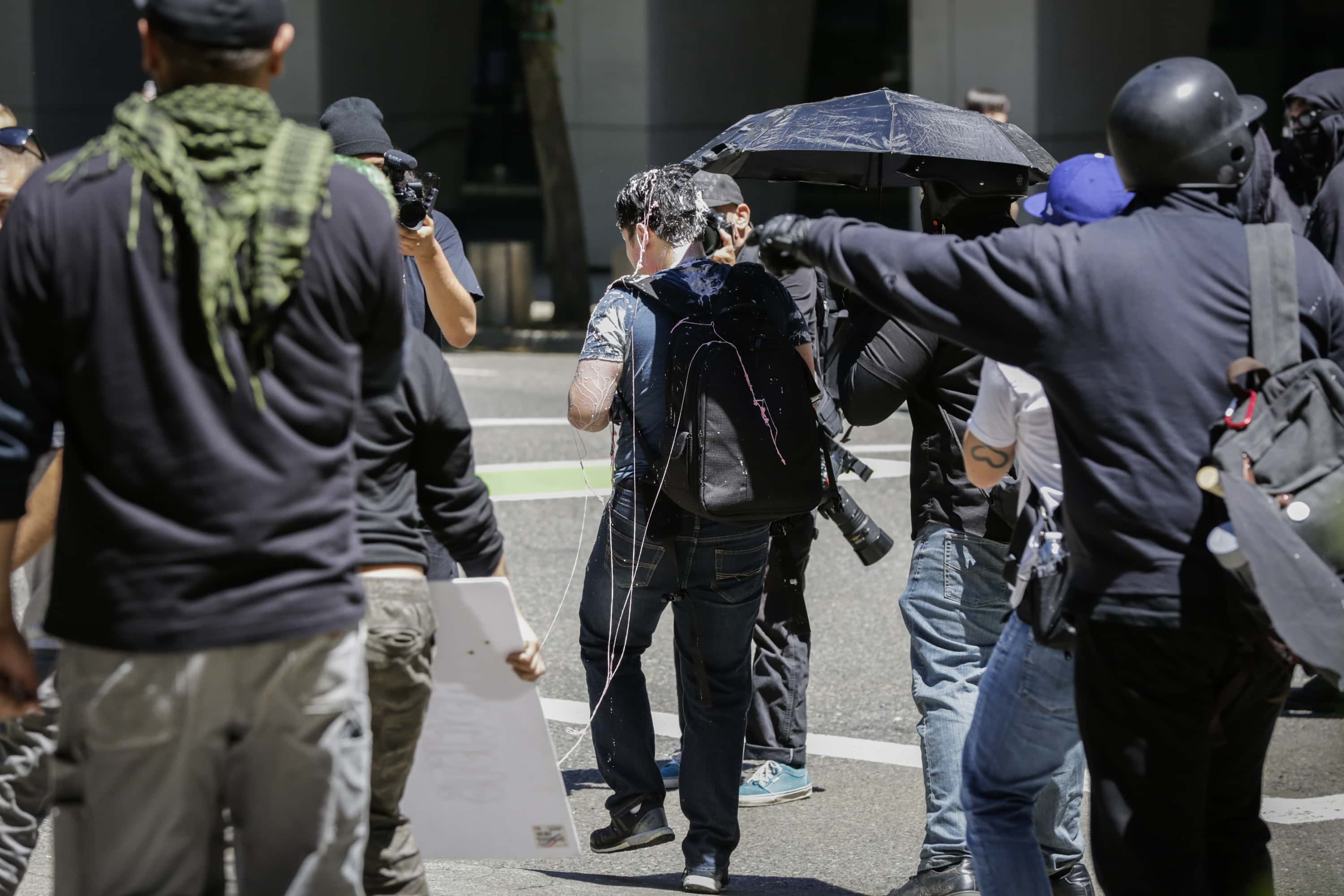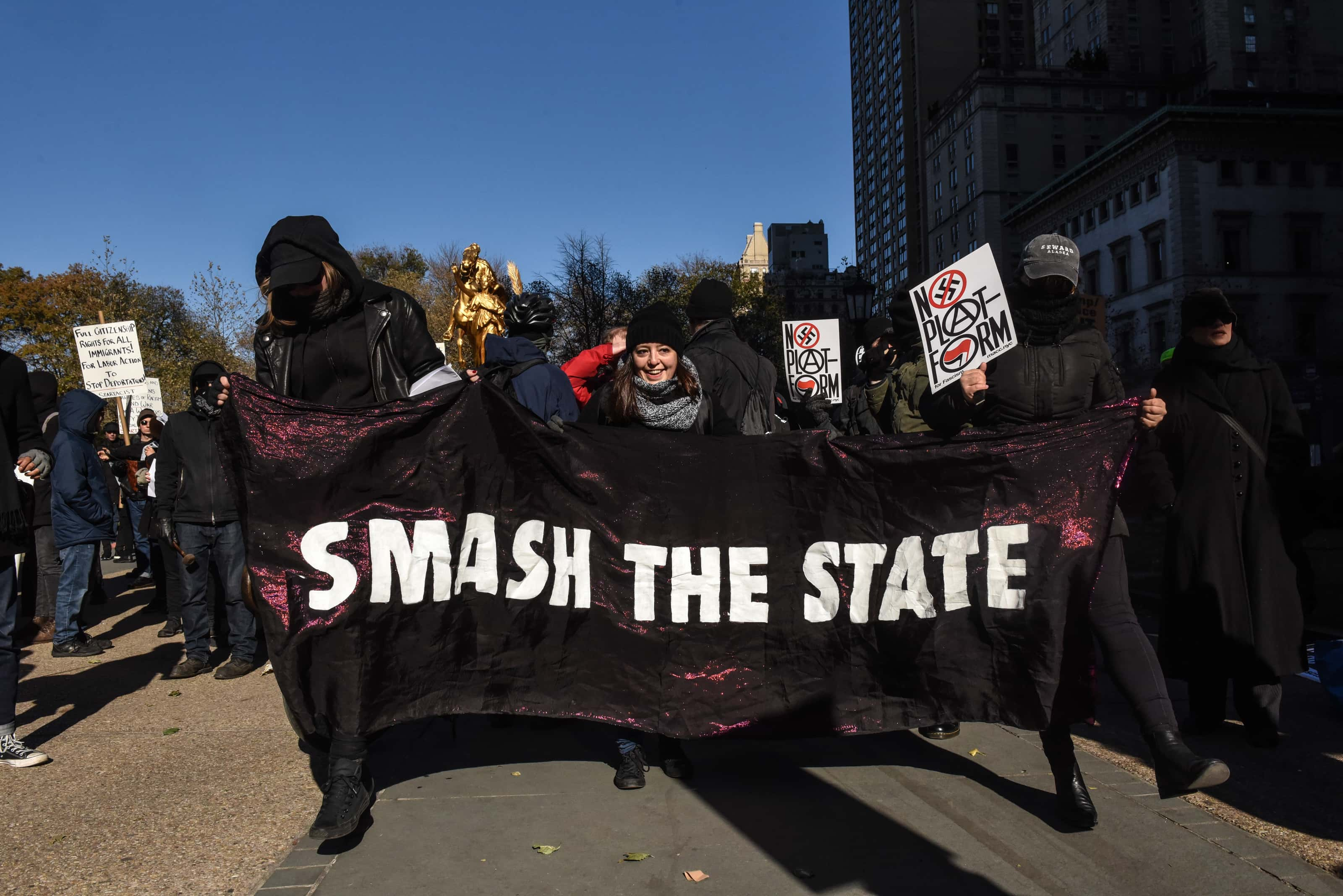Who is Andy Ngo? From photographer at a used car dealership to one of America's most polarizing media figures

Controversial journalist Andy Ngo found himself in the headlines on Twitter on Sunday, August 2, with people seeking micro-blogging site to “unverify” him. The man is one of the most polarizing figures who is loved by the right-wing activists but equally hated by those located at the other end of the spectrum. Of late, voices have evolved suspecting the credentials of Ngo. Last month, the Daily Beast carried out a probe on conservative news outlets like Newsmax and Washington Examiner that published Middle East hot takes from “experts” who were actually fake people pushing propaganda. As those who feel Ngo is unreliable enriched the Twitter campaign to “unverify” the man, DefendPDX, a collective of journalists, tweeted: “Andy Ngo operates alter-egos so he can post a range of true opinions he knows would hurt his online ego.”
So, who is Andy Ngo and what is it so controversial about him?
Ngo’s background
Ngo, who mocked the “UnverifyAndyNgo” trend on Twitter to ask “What are they so afraid of?”, is a conservative social media activist and journalist. The editor-at-large of The Post Millennial, a conservative news website in Canada, Ngo came to the limelight in June last year after facing the physical wrath of unidentified people, suspected as antifa protesters, while covering a counter protest to a Proud Boys march in Portland and for his alleged links with far-right groups. Son of immigrant parents from Vietnam, Ngo was born (1986) and raised in Portland and raised in a Buddhist family. He went to an evangelical Christian church in high school and became an atheist later. During his study days in the University of California, Ngo volunteered with AmericaCorps and graduated in 2009 with a degree in graphic designing. He struggled to get a job and worked as a photographer at a used car dealership besides doing various low-paying jobs. In 2015, Ngo started graduate studies in political science at Portland State University with research interests in secularism and political Islam.
The milkshake attack and the polarization thereafter
While the Proud Boys were holding their rally in Portland, left-wing activists, including the local branch of the militant antifa group, came up with a counter protest. The two movements soon clashed and the incident that caught all the eyes was the attack on Ngo and he was reportedly sent to the hospital to overcome his injuries. In a video footage, it was seen how demonstrators poured milkshake on Ngo and hurled eggs at him, punched him and yelled at him. It looked like an act that was unprovoked and was carried out by people just because they didn’t like Ngo. The man suffered a head injury.

But soon, both sides of the ideological spectrum tried to use the incident to suit their respective narratives. The conservative and mainstream media tried to establish that the attack on Ngo made it evident that left-wing violence was getting into a serious menace in the country. Texas Republican Senator Ted Cruz even sought an investigation into the Portland ruckus.
But the left-liberals were not ready to see Ngo as innocent. They said the mainstream media is portraying a wrong picture of the man of Vietnam descent. According to them, Ngo is a far-right sympathizer who had targeted the antifa members in the past. The sympathy for Ngo was only helping the right-wing smear campaign, they said. Press Secretary at the LGBTQ advocacy group Human Rights Campaign Charlotte Clymer had tweeted that violence is something that Ngo himself also wanted to see from the start.
Violence is completely wrong, and I find it sad and weak to allow a sniveling weasel like Andy Ngo to get under one's skin like this, but I'm also not going to pretend that this wasn't Ngo's goal from the start.
— Charlotte Clymer 🏳️🌈 (@cmclymer) June 30, 2019
I mean... let's cut the shit here. This is what they do.
Ngo goes after antifa a year later
As race protests intensified in the US and even President Donald Trump accused the antifa protesters of inciting violence, Ngo filed a lawsuit worth $900k against the group in June for carrying out a “campaign of terror and harassment” against him. "Antifa is an openly extremist movement with the training and intent of destabilizing this country and overthrowing our Constitution," Ngo had said in a press conference. "The protection of foolish politicians and the media have emboldened this movement to carry out unprecedented terrorist attacks."
Why Ngo is a controversial figure
Ngo might not be a big name in the journalism fraternity but he is still a much discussed name. Quillette, the publication with which Ngo has been involved, is considered an “intellectual dark web” featuring aspects like anti-left ideologies and anti-political correctness. Ngo’s contribution to publicity lies in the fact that he has blended the ideological conservativeness with the tactic of a field reporter who works on the spot (conservative actor James Woods recently showered praise on Ngo to say that he is the one who is “shining a light on domestic terrorism” by antifa in Portland mocking American journalism). From Ground Zero, he releases content on social media to grant validation to his ideological leanings, demonizing the left and multiculturalism in the process.
To give an example, Ngo went to the UK to document the alleged threat the Muslim poeple there posed to the British society. He later wrote a piece “A Visit to Islamic England” claiming the country was being quietly gobbled up by fundamentalist Islam. He even showed a public safety board restricting alcohol as one to support his claim that Islam was indeed taking over England. Ngo is accused of twisting facts to play the narrative in a way that suits his ideological foundations and keeps on targeting the left and Muslim immigrants, conveniently ignorning that there are also cases of right-wing extremism happening around.
Ngo’s Vietnam roots influenced his life views
Many feel curious that being a man of non-American origin, why Ngo is still seen as pro-White? There is a striking story of evolution here. Ngo had his lessons from his family’s not-so-happy past in Vietnam. His mother came from a middle class family and was thrown into a labor camp along with her family in her teens. His father was a police officer in a small coastal town and his job did not guarantee life. The family left for the US in 1978 to turn their fortunes around.

“In my youth, my Asian-American or Vietnamese identity was really at the forefront of how I viewed myself," Ngo was once quoted as saying by a report in Oregon Public Broadcasting. “I always felt, in a way, out of place growing up in the Pacific Northwest. At that time, I thought it was because of race.” He found himself to be the only kid in his classes once but conceded that it was only twice that he experienced racism.
But for Ngo, a more shocking experience was waiting back home. When he traveled back to Vietnam for the first time, he was expecting that people there would welcome him. But it was not to be and that influenced Ngo.
Fair skin, sexual orientation made Ngo a suspect in ancestral land
“When I arrived, I was thinking, ‘This will feel like home. I’ll finally be among my people,” he said, adding: “People looked at me, and they could tell right away that I was not native. My skin is really fair because I was raised in the US And so everywhere I went, people really stared at me. They made it very obvious. At first, I didn't quite know what was going on, so I asked my family there, and they were just like, ‘They’re not used to seeing somebody as white as you, as pale as you’.”
Ngo was in for more shock when he went to the rural parts of Vietnam to see his cousins. They pointed out his sexual orientation (he is a gay) and the experience thereafter changed his attitude towards race and politics. “‘Why are you denying your parents the legacy of having children?’ The paradigm they were raised in was more about, ‘You need to think about others, you cannot just be thinking about yourself.’ You have to think about your family, and by extension — in a way — your tribe, even if they wouldn't use that term,” he told OPB.
Ngo said it was then when he started feeling more like an American.
“Even though I am a sexual minority and I’m a person of color, I come from a family who were refugees so I feel so lucky to be able to have been born and raised in this country. So yeah, when I see the American flag, I feel a sense of pride and honor of being part of that. And I regret that a lot of people see it as a symbol of violence that should be burnt,” he said.
Ngo’s ideological leanings make him opposed to antifa
It is not unusual to see antifa supporters locking horns with Ngo often. The former group comprises typical black-clad activists who are radicals and who think radicalism is the most effective way to take on the far-right groups that are also supporters of Trump. It is not surprising to see these people attack Ngo who has smartly used journalistic techniques to expose the group which has a politically opposite belief system. But the problem lies in the fact that since both Ngo works in an individual capacity to validate his ideological leanings and the antifa members also do not have central command and are typically unanimous, there is a much higher chance of open physical fight when the two meet. Portland saw exactly that happening.










